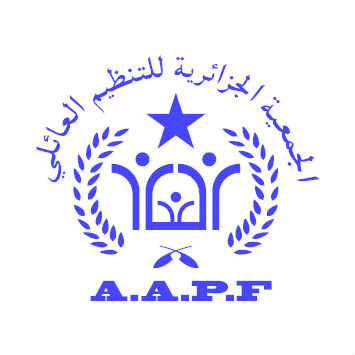

| 31 March 2016
Association Algérienne pour la Planification Familiale
The Algerian Association for Family Planning (AAPF) is a non-profit, non-governmental organisation (NGO), created in 1987. The Algerian Association for Family Planning works for the well-being and development of the individual and the family and promotion of sexual and reproductive rights, and the rights of women and young people. Vision: An Algeria where all individuals make free and informed choices and enjoy full sexual and reproductive health rights, without discrimination or stigma. Mission: To advocate for rights, facilitate sexual and reproductive health services, and ensure access to information for all, especially for vulnerable and underserved groups. AAPF believes: In social inclusion, with a commitment to vulnerable and underserved populations to benefit from sexual and reproductive health rights. In diversity and respect for all people without discrimination. That passion inspires and encourages adherence to and advocacy for sexual and reproductive health rights. That accountability requires transparency and performance that meets the expectations of partners and beneficiaries. Objectives and targets include: Strengthen the commitment of decision-makers to improve the legislative and policy framework for sexual and reproductive health rights, policies in favour of sexual and reproductive health rights and improve the legislative and policy framework for sexual and reproductive health rights. To increase the support and commitment of civil society, particularly women's and youth groups, to the defence of sexual and reproductive health rights. Improve access to comprehensive sexuality education for young people. To increase the population's knowledge of sexual and reproductive health rights. To increase the supply of quality sexual and reproductive health services in collaboration with health partners. To improve the operational efficiency and double the income of AAPF. Expand the base of volunteers and people interested and involved.

| 31 March 2016
Family Planning Association of Nepal
Established in 1959. the Family Planning Association of Nepal (FPAN) is Nepal's first national family planning service delivery and advocacy organization. It is a major collaborator of the Government of Nepal's national sexual and reproductive health (SRH) program, contributing a greater percentage of all SRH services in Nepal annually. FPAN serves Nepalese people in 44 districts, focusing on the poor, marginalized, socially excluded and underserved (PMSEU) populations, which include female sex workers, people living with HIV (PLHIV), LGBTIQ people, injecting drug users, men who have sex with men (MSM), migrant workers, people with disabilities (PWD), survivors of gender-based violence (GBV), urban slum dweller and people affected by disaster and crisis. The mission of FPAN is to "champion a volunteer movement for increased provision of SRHR to all, particularly to those most at risk, marginalized, and under-served". The planned outcomes set by FPAN for the strategic planning period (2016-2022) include: Nepal Government respects, protects and fulfil sexual and reproductive rights and gender equality; Nepalese people empowered to act freely on their sexual and reproductive health and rights; a high quality integrated sexual and reproductive health services delivered; and a high performing, accountable and strong FPAN. The success of FPAN is due to its extensive and diverse network of service delivery points, as well as its expertly trained staff and volunteers who provide services in areas where they would otherwise be unavailable. FPAN provides an Integrated Package of Essential Services (IPES), which includes sexuality counselling, contraception, including emergency contraception, safe abortion, STIS/RTIs, HIV & AIDS, obstetrics, gynecological and sexual & gender-based violence services. These services are provided across 974 service delivery points (including 270 clinical SDPs, 22 family health clinics, 56 community health clinics, 75 associate clinics, 117 mobile teams, and 794 non-clinical service delivery points). FPAN provides approximately four million SRH services each year across its service delivery points, with family planning accounting for 40%, STIs/RTIs for 14%, gynaecological services for 12%, HIV services for 10%, and other services accounting for the remaining 24%. FPAN has eight clinical training centres that are connected to its family health clinics, which provide full range of family planning and reproductive health services. The training centres are accredited by the National Health Training Centre, (MoHP). These centres provide a variety of family planning and sexual and reproductive health training to health care providers from FPAN, government, and non-governmental organizations (NGO) health facilities.







